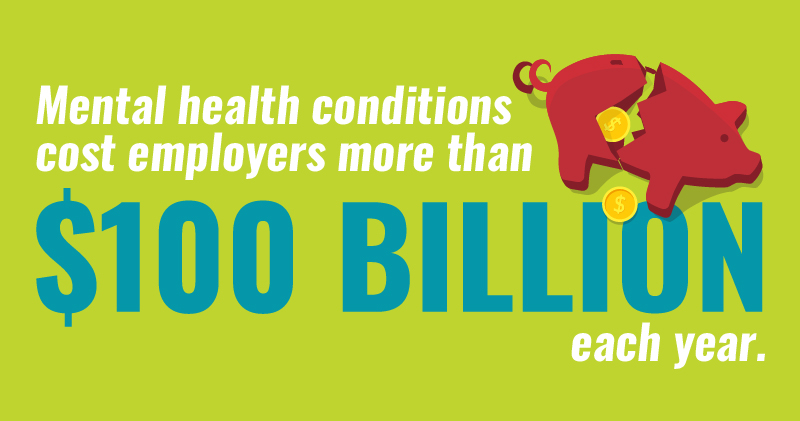Creating an environment for positive mental health in the workplace is important — especially for those in a fast-paced, constantly changing industry like marketing. Employees spend 40 hours a week, more or less, at work. We forge friendships with peers, serve our clients and bosses and employees, and try to squeeze in life management during breaks. Individually and as teams, we make thousands of decisions a day. We interact with a multitude of personalities, each with their own needs and wants and insecurities and motivations. Considering the highs and lows everyone encounters throughout every single workday, is it any wonder that it can all take a toll on our mental health?
Yet work is typically the last place we expect to discuss mental wellness. Employees don’t want to talk about it for fear of losing opportunities, damaging relationships or being judged. Most employers don’t want to talk about it, either, for fear of showing weakness or crossing personal and professional boundaries.
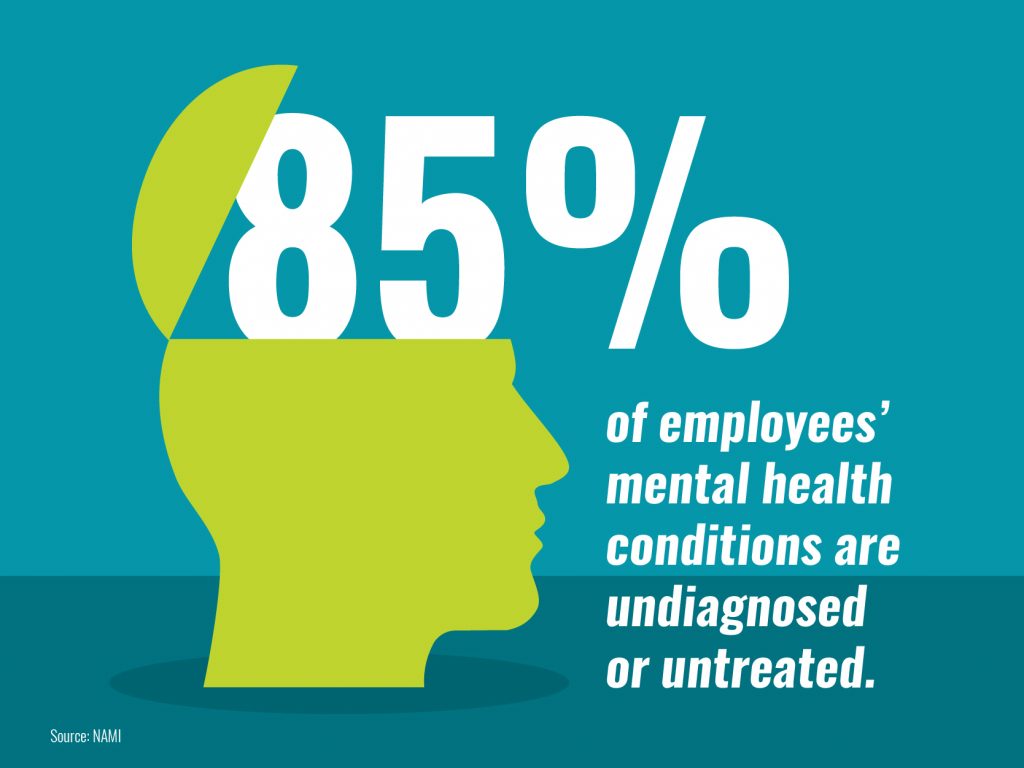
Mental health stigmas: It’s time to take a stand
Now more than ever, it’s important for mental health in the workplace to be discussed openly and often. Not only does it help remove the stigma surrounding mental illness — which nearly 1 in 5 U.S. adults live with every day — it can alleviate some of the compound stress employees often feel as a result of work-related issues.
Rather than worrying about how they’re reacting to a work challenge on top of the challenge itself, workers are free to express what they need in a supportive environment, reducing not only their anxiety at the task at hand, but also their anxiety over the anxiety.
Employers have the power to change the climate of fear, and they can start right now. Not only is it good for employees, their families and the community — it’s good for business.
Each year, employers lose more than $100 billion and 217 million workdays to mental health conditions. Employers can improve employee satisfaction, productivity and retention — and contribute to an overall healthier society — by addressing mental health issues at work and investing in mental health treatment for employees.
Here are three reasons why making positive mental health in the workplace a priority could benefit your business or organization:
1. Financial savings
Employees at high risk of depression often have the highest health care expenses. What’s more, depression and anxiety cost the global economy an estimated $1 trillion per year in lost productivity. Plus, many people with mental health issues also have physical health issues, including heart disease, diabetes and respiratory illness. Treating people with co-occurring illnesses costs 2-3 times more than treating those without. Combining medical and mental health treatment services could save the U.S. $37.6-$67.8 billion a year.
2. Better job performance and productivity
All science reasons aside, we can all agree that it’s hard to complete even the smallest tasks let alone concentrate on the larger ones when your mind is elsewhere. Depression interferes with physical job performance about 20% of the time and cognitive performance about 35% of the time.
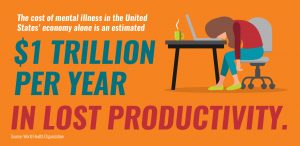
3. Employee satisfaction and retention
Companies that foster a positive, supportive work environment can attract more employees and better retain current team members. The more happy employees you have, the more likely those that are struggling will be able to find someone to reach out to for support.
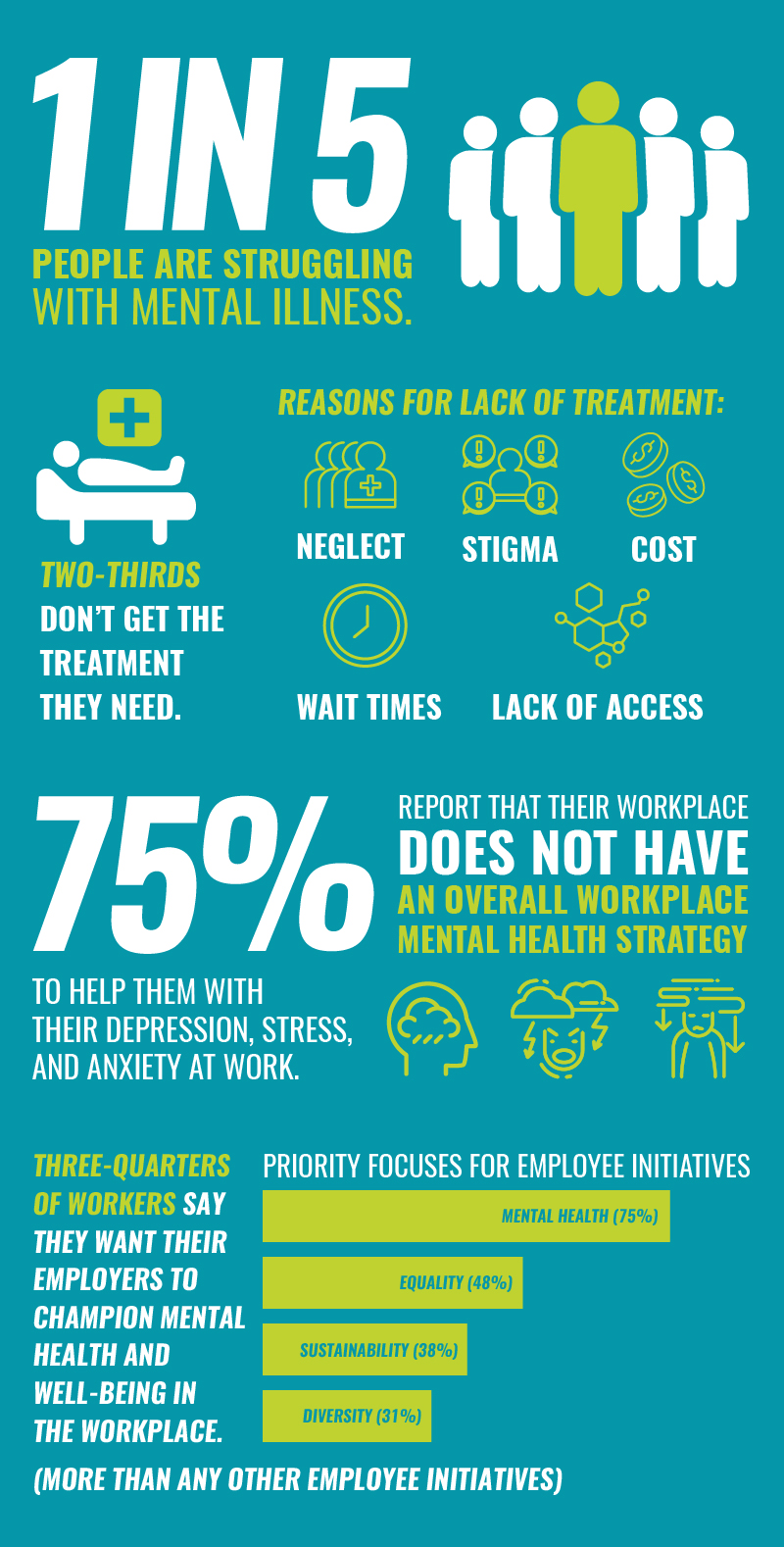
What can employers do to promote mental wellness?
- Create a positive workplace and improve engagement.
- Offer stress management techniques, including mindfulness, breathing exercises and meditation.
- Designate quiet spaces for relaxation activities.
- Reduce stigma by openly discussing mental health in the workplace.
- Focus on intervention and prevention by treating issues.
- Distribute materials that address depression and anxiety.
- Train managers how to recognize the signs and symptoms of stress and depression.
- Encourage employees to seek help from qualified mental health professionals.
- Form a mental health committee, like the LF Mental Health Matters Committee, to help implement the above ideas.
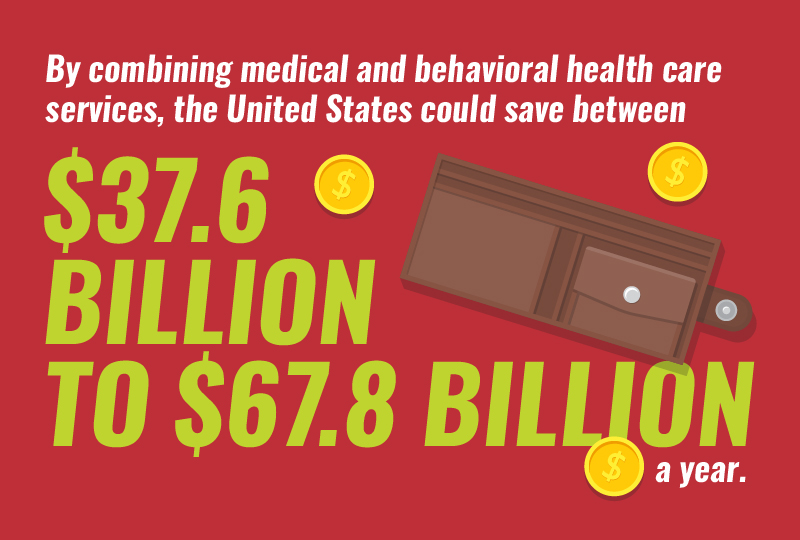
How does Lessing-Flynn promote mental wellness?
LF is dedicated to promoting mental wellness at every turn, while also offering a variety of resources for every associate. In addition to weekly 1-on-1 check-ins between management and employees, we also encourage regular virtual meetups, happy hours and chats among team members to foster supportive relationships and a spirit of belonging. We provide empathy training through ATW and host Shark Tank-style events inviting associates to pitch suggestions for improving our culture. From one such event, we created the All-Inclusion and Diversity Committee as well as the Mental Health Matters Committee for sharing information about mental health-related issues, organizations and events. But most importantly, we meet our friends and coworkers where they are, offering empathy, encouragement and support in a judgment-free environment.
Bottom line: Mental health in the workplace is key
Employers who look out for the mental wellness of their employees will have a happier, healthier, more productive workforce — and a better bottom line.
Sources:
camh.ca/en/driving-change/the-crisis-is-real/mental-health-statistics
cdc.gov/workplacehealthpromotion/tools-resources/workplace-health/mental-health/index.html
who.int/mental_health/in_the_workplace/en/
namipierce.org/why-employers-need-to-talk-about-mental-illness-in-the-workplace/
LF Newsletter Alert
Want Lessing-Flynn to rock the socks off your inbox with insights and more?

